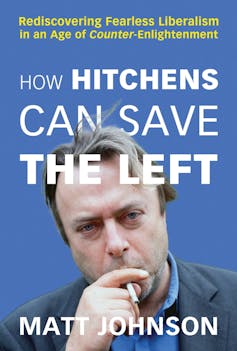Christopher Hitchens was a model of the public intellectual as celebrity. Could he really be the saviour of the Left?
- Written by The Conversation

Future generations are very unlikely to credit Christopher Hitchens with saving the Left. Nor is he likely to be remembered as a great essayist like his long-time hero George Orwell, or even H.L. Mencken, after whom he named his 20-year column for The Nation magazine.
The reason Hitchens is likely to fade from public consciousness, despite his impressive wit and intellectual range, is that he undermined his reputation by loudly and callously supporting the 2003 invasion and occupation of Iraq. Other talented journalists of Hitchens’ era – Peter Beinart and George Packer – got Iraq wrong and admitted their mistake. Hitchens never did.
Review: How Hitchens Can Save the Left: Rediscovering Fearless Liberalism in an Age of Counter-Enlightenment – Matt Johnson (Pitchstone Publishing).
In his new book, Matt Johnson offers a defence of Hitchens’ support for the wars in Iraq and Afghanistan, which he interprets as evidence of Hitchens’ anti-authoritarianism and universalism. He goes on to argue that anti-authoritarianism, universalism and free speech are the values the contemporary Left should organise itself around.







